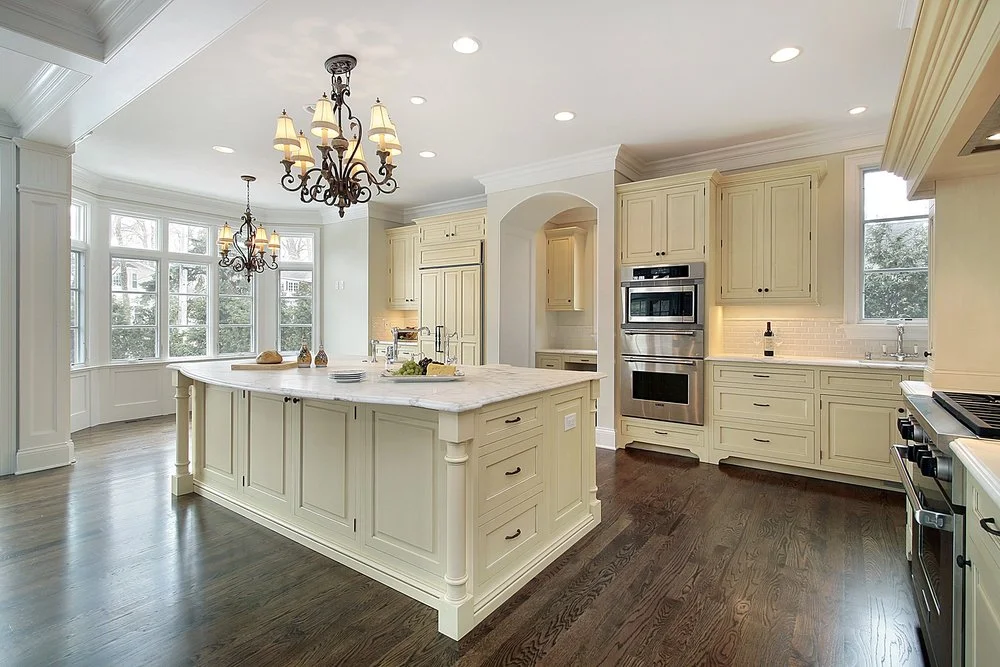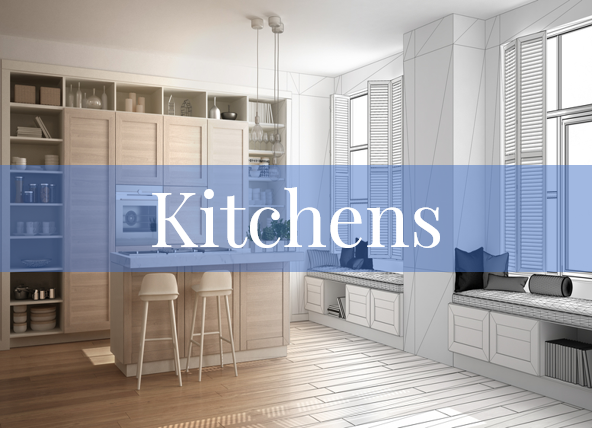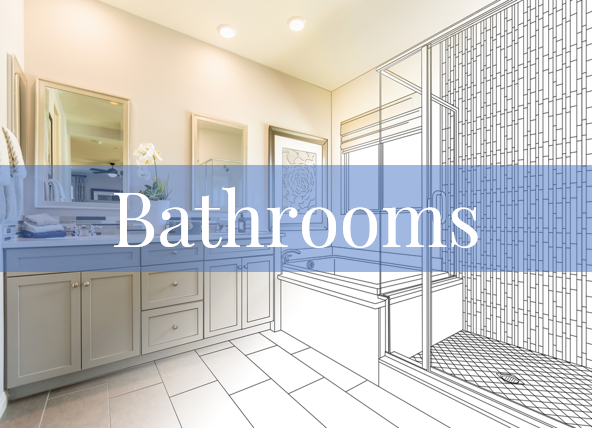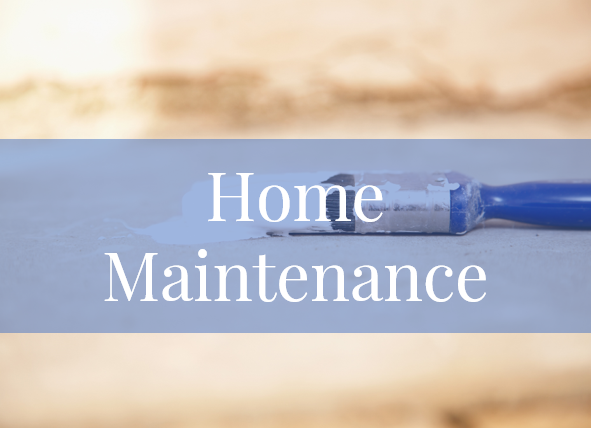Ultimate Checklist to Ease the Stress of Renovating
/When it comes to renovations, you can always expect a little bit of stress. I always tell my clients to expect the unexpected. However, there are some things that you can do to make the whole process go a lot smoother, whether you're planning a reno for a small room or a whole house renovation. By following our checklist and doing your due diligence, you can ensure that you’ve done everything possible to make the job run a little smoother.
Prefer to listen?
Some General Guidelines
Planning and being prepared before the renovation even begins is the one key piece of advice I can give you in order to reduce your stress load. We've had clients book us to do the job more than six months in advance. We make them aware of what fixtures, etc. they need to purchase, and yet when we call them with the two-week notice to get started on their project, they haven't even started shopping for light fixtures or paint colours despite our best efforts to remind them to do so. They are left rushing around at the last minute, making decisions that may not have been ideal had they taken more time to think about them.
By following our checklist and knowing your deadlines with your contractor, you can ensure that you have everything lined up, in place, and ready to go before the renovation starts. Always be sure to check in with your contractor to make sure that you are buying the right products and that you are getting them delivered to your home or picked up at the right time.
Your Ultimate Checklist
The first step in planning for a renovation is to know exactly what you want to have changed and if you have a budget for it. These are the things you should think about before you even make a phone call to hire a contractor. If you do have a budget, and if that budget is pretty strict, make sure you let your contractor know. There's no point in spending a couple of hours finding a contractor you love and connect with only to find out that his prices are too high for your budget. Before you make that first appointment to meet with them, ensure they know what your budget is and that their price point can fit within it. When you do set your budget, make sure that you add 10% - 15% as a contingency. This allows for unforeseen circumstances or extras that you may want to add during the renovation.
Always meet with potential contractors in person. Don't just send them some measurements or drawings and ask them for a quote to be emailed. You have no idea who you are working with if that's all you do! Hiring the right contractor is all about connecting with the person who's going to be spending time in your home. You can't do that by sending measurements and communicating via email. For a complete checklist for selecting a reputable contractor, click here.
Speak to your neighbours in advance of your renovation so that they know what is going on. You will have a lot more cars around your home and things going on, and you don't want your neighbours to be concerned or wondering what's happening. Make sure they have your phone number so that they can contact you if they have any questions or concerns during the process. It never hurts to bake a batch of muffins and take them over when you're telling them about your renovation. For more information about talking to your neighbours, check out our blog post here.
If you have pets in your home that will remain there during the renovation, make sure your contractor knows about them and what the degree of expectation is for their care and comfort. If you don't let your kitties outside, make sure your contractor knows to be careful when opening the door and coming into the home. If you are gone for the entire day and you'd like your contractor to let the dog out into the backyard to do his business, make sure you discuss this with the contractor to ensure they are comfortable with that. Some dogs can be rather aggressive around new people, so it's often best to introduce your pets to your contractors in advance of the project's start. We had one experience where the dog was happy with all of our workers except for one. He wouldn't even let the team member into the house, and he would growl at him at the front door. These are all things that should be discussed and worked through prior to the start of the renovation. For more information on a pet-friendly renovation, click here
Once you've selected your contractor and have a rough idea of when your project will begin, it's time to start making your selections. Most contractors will provide the labour, but you will have to purchase sinks, faucets, bathtubs, select paint colours, and more. Many contractors, like ourselves, will offer you assistance with this by helping you pick your paint colours, countertops, letting you know if the bathtub you've picked out is of good quality, etc., but not all contractors will do that. Make sure you know what advice and service you can get from your contractor before you venture out.
Here is a list of fixtures you may need to purchase or pick out before your bathroom renovation begins: bathtub, overflow kit, tub faucet, tiles, shower controller and shower head, flooring, paint colour for the walls, ceiling, and trim, sinks, faucets, countertops, light fixtures, toilet, toilet paper holder, towel bar, and any other accessories that you want the contractor to install for you, such as shower doors or shower rods and curtains. If you are selecting a standalone tub, you may also need to purchase the island drain for the tub. Although this is a fairly extensive list, it may not be complete for your renovation. Everyone's renovation is unique and different, and for example, if you decide you want to have a heat lamp or a heated towel rack in your bathroom, that may be another fixture you have to purchase in advance. We always recommend that our clients have these fixtures in their homes at least two weeks before the start of their project. We will often go to their home and inspect the fixtures to make sure there aren't any problems with the selections or damage to the fixtures purchased. We highly recommend that as soon as a fixture you've purchased has arrived in your home, you open up the box and fully inspect it for any damage.
Here is a list of fixtures you may need to purchase or pick out before your kitchen renovation begins: countertop, door style, colour of cabinets, hardware for your cabinets, paint colour for your walls, ceiling, and trim, sinks, faucet, dishwasher, fridge, stove, microwave, light fixtures, tile for your backsplash, and flooring. Again, this may not be a complete list for your particular renovation, as everyone's kitchen renovation is unique with its own needs. Many of the items that you have to select for your kitchen renovation need to be done well in advance. For example, the cabinets cannot be manufactured until the door style and colour have been selected. Make sure you start the planning and selection process for your kitchen renovation at least 3 months in advance of your start date.
Make sure you empty and clean out any cupboards, cabinets, vanities, etc. that will be involved in your renovation. Although this might seem obvious, you'd be surprised how many times we arrive on a job site ready to start demolition or begin work and the client hasn't cleaned out any cupboards or moved anything out of the way, including dirty laundry on the floor! This is a critical step. By the time your contractor steps inside your door to start your renovation project, there should be nothing in his way. In most cases, it's okay to leave large furniture in place, as they will move those as necessary, but small breakable items should be tucked away, cabinets and closets emptied if that's where the work is taking place, and so on. Think about the work that is being done and make sure that everything is cleared out and ready for your contractor. If we show up on site and the area isn't prepared, we either charge an hourly rate to get the space prepped to begin work or we will walk off the project and come back when the client is ready for us. This could start your project with unexpected expenses or delays, neither of which promote a stress-free renovation.
Dedicate 15 to 20 minutes a day to sit down and think through your renovation project once it has begun. At the end of each day, you will likely walk through the areas where your contractor has been working, and you may find items you want changed or things you want added or deleted. Take the time every day to make a written note of what you want changed or things you want to discuss with your contractor. We highly encourage our clients to have all communication sent through email. That way, we will see it first thing in the morning, and we can communicate and maintain written communication between each other. Phone calls can be misinterpreted or things forgotten, and written notes can be lost, but an email will generally stay in a client file and can easily create a back and forth between client and contractor.
Be prepared to embrace a little mess. Renovations will be disruptive, and they will cause dust. That can't be avoided. We are often complimented on how clean we keep our job sites. It's one of the things our clients always comment on. However, there's still going to be an amount of dust and upheaval that can’t be avoided.
If you are going to be home during most of the renovation process, avoid the temptation to always be watching or following your contractor and workers. Check in on them a couple of times a day, but try to stay out of the way. They are trying to do the best job they can in the most efficient time possible, and if you are always hovering over them, that can add to their stress and cause mistakes to happen. No one ever wants to be watched over their shoulder while they are working. If you have questions, always ask them, but try to give them the space they need to do the best job they can. The best advice I can give you is to try to keep yourself occupied during the renovation. Go out for lunch with your friends, go for a massage, take a walk in a local park, or take a craft class at a local facility. Make sure you're available for decision-making by always having your cell phone with you, but getting away from the construction area and just having something else to do will help the process flow a lot smoother. Watching someone else work won't make the process go any faster, and it may end up driving you nuts in the process.
Plan ahead for meals, especially if your renovation is taking place near the kitchen. You may need to prepare freezer meals in advance, plan to eat out some of your meals, or just meet up at a friend's house for a few dinner dates. For more information on planning meals during a renovation, click here
In summary…
Planning ahead is really the key to a successful renovation. By following the tips and implementing the ideas in our checklist, you may not be able to eliminate all the stress of your project, but you certainly should be able to minimize it. Talk to your contractor and make sure he's aware of your needs and expectations. Make sure you ask him what his needs and expectations are as well. Remember, you're establishing a relationship with your contractor. Something as simple as putting on a pot of coffee in the morning and offering a cup to the workers can go a long way toward making them happy to be working at your home. A happy worker equals a happy renovation, which in turn makes for a very happy homeowner!
















